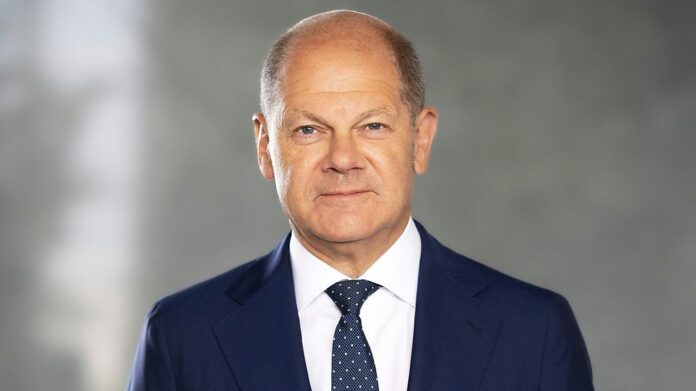
Olaf Scholtz
Nagorno-Karabakh Blockade:
Can (and Will) Europe Act?
by Muriel Mirak-Weissbach
Armenian Mirror Spectator
BERLIN, JANUARY 26, 2023 — In the wake of growing protest actions by human rights groups in several European countries, public awareness of the dimensions and dangers inherent in the Nagorno-Karabakh crisis has been increasing. Major press organs and prominent think tanks are expanding discussion of the dramatic humanitarian crisis caused by the continuing blockade of the Lachin corridor. One webinar on January 18 sponsored by the Heinrich Böll Foundation, affiliated with the Green Party, attracted 300 participants. Political forces are responding, albeit slowly and cautiously, with parliamentary resolutions as well as concrete plans for sending representatives to the crisis area.
In Germany, where the political debate remains focused on the war in Ukraine, the government faces massive pressure to expand its military commitments with Leopard tanks. That considered, the office of Chancellor Olaf Scholz replied to human rights advocate Tessa Hofmann’s call for urgent action including an international humanitarian airlift for Artsakh. In a letter on January 20, Scholz’s office assured her “that the federal government is following the situation in Armenia very closely and shares your concern about the continuing conflict in Nagorno-Karabakh as well as the difficult relations between Armenia and Azerbaijan.” The German government’s position states that both sides should engage “in substantial negotiations for a peaceful and durable settlement of the conflict.” In addition, Berlin supports the EU’s mediation efforts, undertaken by President of the European Council Charles Michel and Special Emissary for the South Caucasus Toivo Klaar, and promotes a complete prisoner exchange and independent investigation of war crimes.
Words or Actions
Well-meaning and carefully worded, to be sure. If the ball is in the court of the European Union, the question is: What can and will European political bodies do? On January 19, the European Parliament voted up a resolution “on the humanitarian consequences of the blockade in Nagorno-Karabakh.” In its list of “whereases,” it cites the Lachin corridor roadblock by “self-proclaimed environmentalists from Azerbaijan since 12 December 2022,” which has “disrupted access to essential goods and services, including food, fuel and medication, for the 120 000 Armenians living in Nagorno-Karabakh, effectively placing them under a blockade;” the resulting “severe humanitarian crisis, significantly affecting the most vulnerable populations,” especially medical patients and separated families; and its further aggravation through “Azerbaijan’s disruption of the natural gas supply to Nagorno-Karabakh, which left houses, hospitals and schools without heating.”
In its blockade action, “Azerbaijan is breaching its international obligations under the trilateral ceasefire statement of 9 November 2020,” to “guarantee the security of persons, vehicles and cargo moving along the corridor in both directions.”
Considering the sum of these actions, which “set back the peace process between Armenia and Azerbaijan and undermine international confidence,” the European Parliament (EP) “[d]eplores the tragic humanitarian consequences of the blockade … [u]rges Azerbaijan to respect and implement” its November 2020 commitment and “immediately reopen the Lachin corridor….” The EP calls furthermore for “a comprehensive peace agreement, which must guarantee the rights and security of Nagorno-Karabakh’s Armenian population;” for Azerbaijan “to protect the rights of Armenians living in Nagorno-Karabakh and refrain from its inflammatory rhetoric that calls for discrimination against Armenians and urges Armenians to leave Nagorno-Karabakh.” Azerbaijan should cease its disruption of “transport, energy and communication connections between Armenia and Nagorno-Karabakh in future.” Azerbaijan’s “scapegoating of human rights defenders” is condemned, as is “the inaction of Russian ‘peacekeepers’.” The EP “considers that their replacement with OSCE international peacekeepers, under a UN mandate, should be negotiated urgently.” Furthermore, international organizations must have unfettered access to Nagorno-Karabakh to conduct their work.
Concretely, the EP proposes a fact-finding mission, either of the United Nations or Organization for Security and Cooperation in Europe (OSCE), “to assess the humanitarian situation on the ground,” as well as unconditional resumption of negotiations as defined in the Helsinki Final Act.
The resolution minces no words regarding the role of Russia and the OSCE Minsk Group, urging the EU to intervene, to release Karabakh’s population from being “hostage” to “Baku’s activism, Russia’s destructive role and the Minsk Group’s inactivity.” The resolution, as is standard procedure, is to be forwarded to all relevant European and member government bodies, as well as the governments of Armenia and Azerbaijan. What they do with it, is another issue.